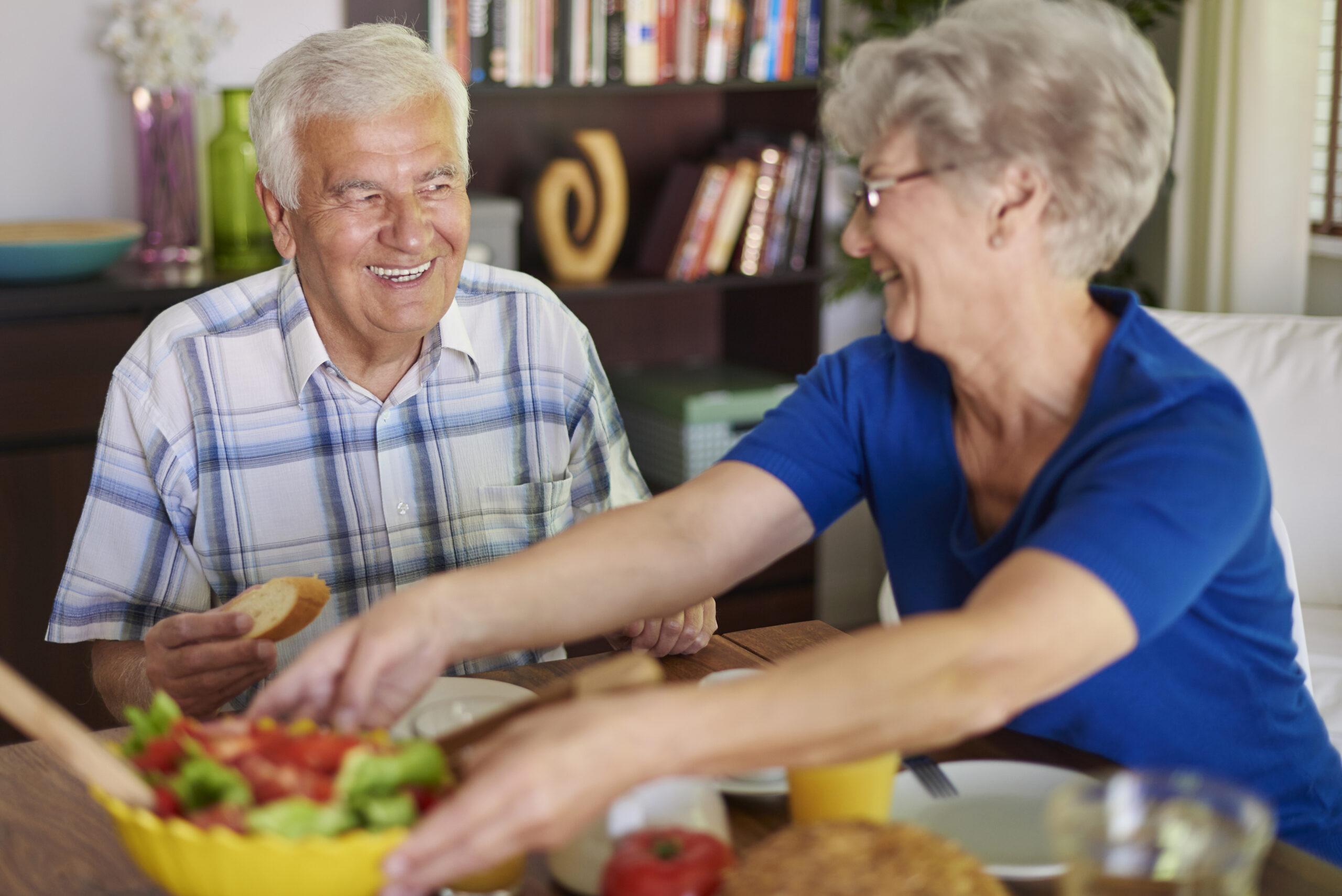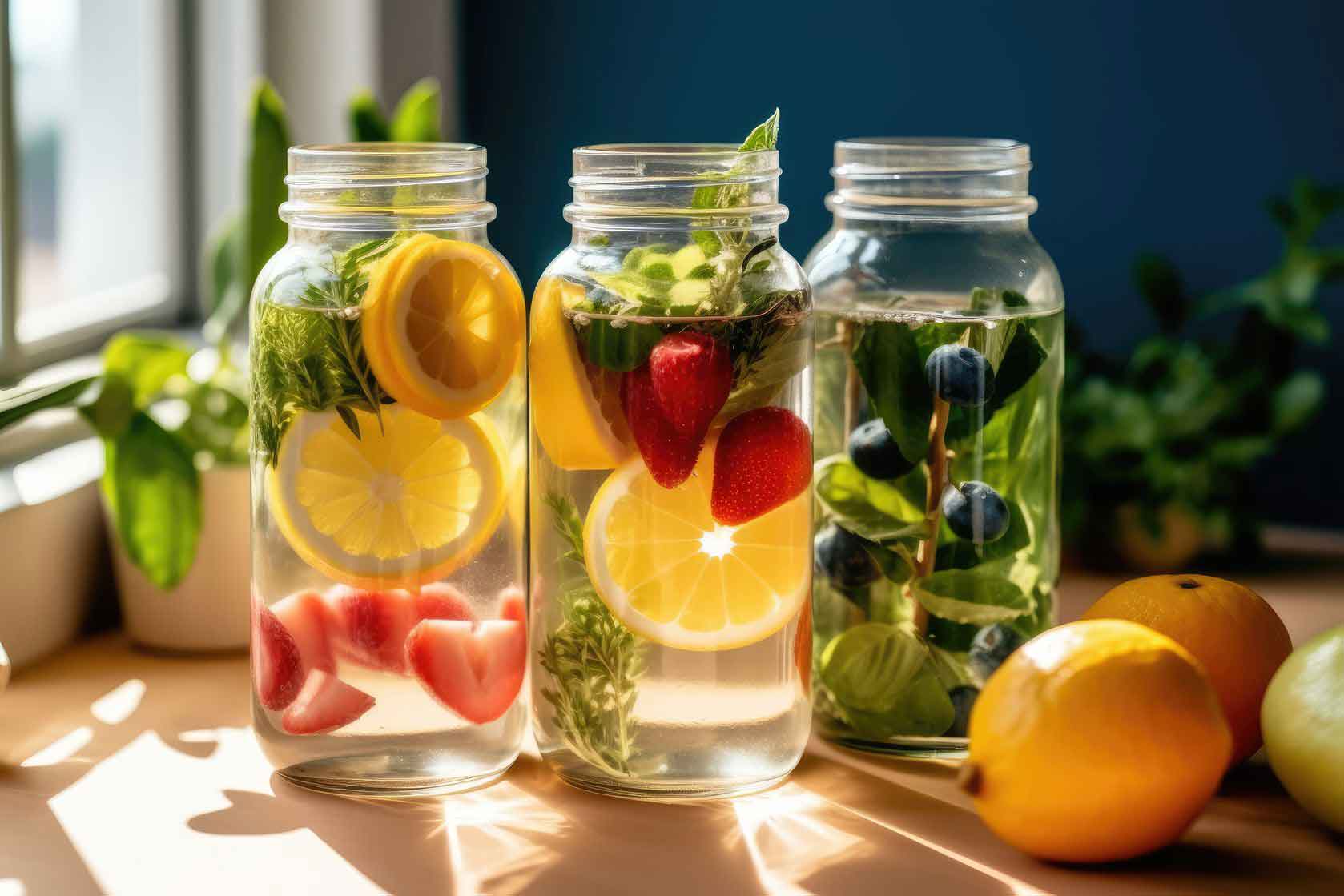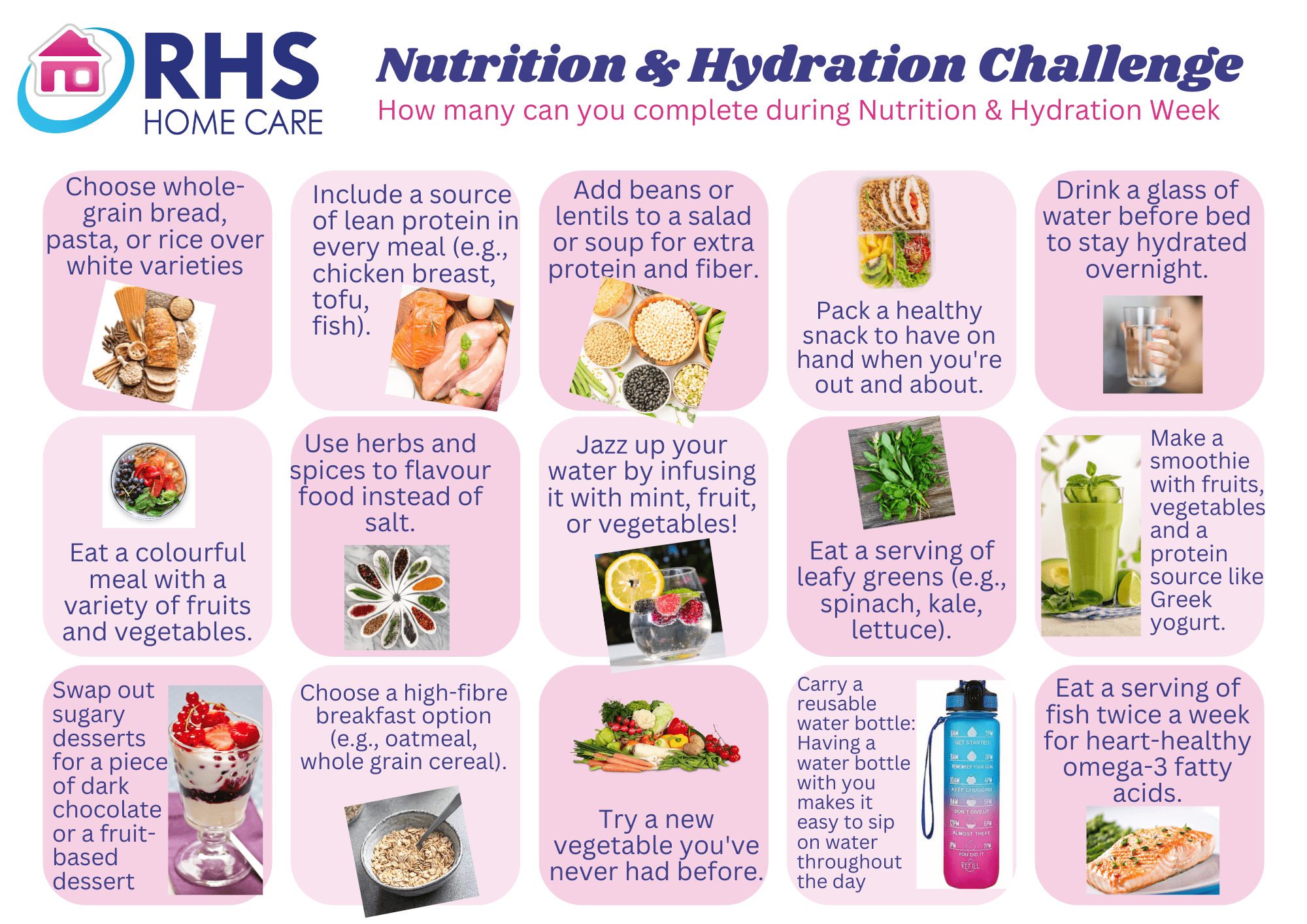Nutrition & Hydration Week – Malnutrition in Older Adults
Malnutrition among older adults poses significant health risks and challenges. Recent studies, including one from 2020, revealed that over a third of elderly individuals admitted to hospitals were either malnourished or at risk. It’s crucial to recognise the signs, understand the causes, and take proactive steps to prevent malnutrition, ensuring the health and well-being of our elderly loved ones.
Understanding Malnutrition:
According to the World Health Organization (WHO), malnutrition encompasses deficiencies, excesses, or imbalances in a person’s intake of energy and/or nutrients. This includes both undernutrition and overweight, obesity, and diet-related non-communicable diseases.
Signs of Malnutrition:
Identifying signs of malnutrition is crucial. These include unintentional weight loss, chronic fatigue, muscle weakness, decreased appetite or loss of interest in food, cognitive impairment, slow healing from injuries or illnesses, increased susceptibility to infections, changes in mood or behaviour, skin, hair, or dental problems, swelling in the legs, fragile bones, and heightened risk of fractures, as well as mobility issues.
Causes of Malnutrition:
Several factors contribute to malnutrition among the elderly, including limited financial resources for purchasing nutritious foods, chronic illnesses or digestive disorders affecting nutrient absorption, medication side effects suppressing appetite, dental problems, or mobility limitations hindering eating, social isolation leading to decreased food intake, and age-related changes in metabolism and nutrient requirements.

Preventive Measures:
Preventing malnutrition requires a proactive approach from caregivers. Here are some key preventive measures:
Nutrition-Based Preventive Measures:
- Meal Planning: Designate and prepare well-balanced meals in advance to promote healthier eating habits.
- Medication Consideration: Be vigilant of medication side effects that may affect appetite and consult healthcare professionals for adjustments if necessary.
- Social Engagement: Encourage social interactions during mealtimes to enhance enjoyment and stimulate appetite.
- Healthy Snacking: Incorporate nutrient-rich snacks into daily routines to provide additional nourishment, especially for those with reduced appetites.
Other Supportive Measures:
- Regular Monitoring: Keep track of the older adult’s weight, appetite, and overall health regularly to identify any changes or concerns.
- Encouragement and Support: Provide positive reinforcement and encouragement during meals to motivate older adults to eat and enjoy their food.
- Variety in Meals: Offer a diverse range of foods to ensure a balanced diet and prevent mealtime boredom.
- Assistance with Eating: Offer assistance with meal preparation, serving, and feeding if needed, especially for individuals with physical limitations or cognitive impairments.
- Educational Resources: Seek out educational resources or nutrition programs for caregivers to enhance their knowledge and skills in proper nutrition and meal planning for older adults.
- Regular Exercise: Encourage regular physical activity to stimulate appetite and promote overall health and well-being.
Seeking Professional Support:
Seeking professional guidance is vital for addressing malnutrition effectively. Healthcare professionals can offer tailored dietary advice, recommend supplements, and provide counselling for underlying mental health issues contributing to malnutrition.
By raising awareness, understanding the signs, and implementing preventive measures, caregivers can significantly contribute to combating malnutrition among the elderly. Prioritising nutrition and overall well-being ensures that our elderly loved ones lead healthier and more fulfilling lives. If you or someone you know is experiencing malnutrition-related issues, don’t hesitate to seek guidance from healthcare professionals for appropriate support and intervention.






